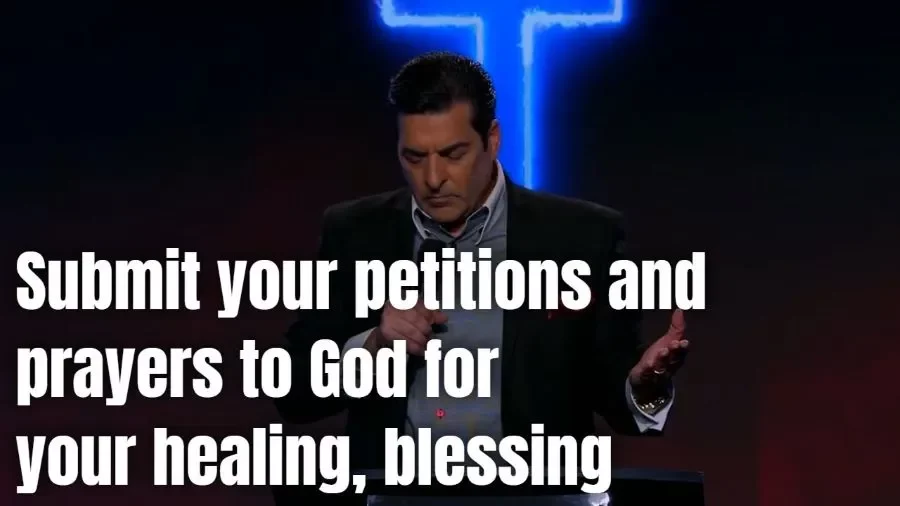Mental Illness: Conquer by Shalom-Driven Intercessory Prayer
Conquer mental illness. Explore the power of Shalom-driven intercessory Prayer, a transformative approach to healing. Discover how this biblical practice can help restore mental wellness.
Mental Illness definition: A disorder that can cause psychological and behavioral disturbances with varying severities. Symptoms include confusion, depression, social withdrawal, extreme feelings of pleasure, anger, excitement, fear, or grief.
Mental Illness Can Deeply Affect Your Love One
Mental illness can profoundly impact your loved one, often leaving them feeling isolated and confused. They need support and understanding. As a Christian, you must uplift them with love and prayer. This article will guide you in praying effectively for your loved one, encouraging open communication, and gathering a supportive team to aid their healing journey.
Pray with love, for love covers many faults (1 Peter 4:8). Those battling mental illness may struggle with self-doubt, shame, and guilt. They might feel burdensome or undeserving of love and support. Your calling as a Christian is to love others as Christ loves you, unconditionally. Show genuine care for your loved one by praying with heartfelt love and compassion.
While prayer is powerful, it’s not a quick fix. God’s timing and plan may differ from yours. Pray with hope, patience, and love, trusting God knows what’s best. Your role is to faithfully pray and provide support, leaving the outcome to God. Focus on The Promises of God
Pray to End Mental Illness: 10 Key Petitions to Lift Up to God

When praying for a loved one struggling with mental illness, here are some specific petitions you can bring to God:
1. Pray for Shalom to Overcome Mental Illness
Shalom, meaning peace, wholeness, and well-being, is a powerful concept in the Bible. Earnestly pray for your loved one struggling with mental illness, asking God to grant them a deep sense of shalom. Pray for their minds to be at ease, their souls to find comfort, and their hearts to experience God’s perfect peace that surpasses all understanding.
Physical and Emotional Restoration
2. Good Health and healing is God’s will for you. Ask God to bring physical and emotional restoration to their mind and body. Pray for any underlying causes or triggers to be identified and addressed.
3. Give Them a Willingness to Talk Openly and Honestly
One of the greatest difficulties for individuals facing mental illness is their reluctance to discuss their thoughts and emotions openly. Pray for your loved one, asking God to break down the barriers that hinder their willingness to communicate. Pray that they may find the courage to open up about their struggles, fears, and anxieties to trusted individuals. Encourage an environment of trust and understanding where they can freely express their inner thoughts without fear of judgment.
4. Cultivate a Holistic Team of Helpers
As you support your loved one, it is essential to ensure they have a comprehensive network of professional assistance. Pray for their journey towards healing to be guided by a holistic team of helpers, including a pastor, doctor, and counselor with Christian faith. Seek individuals who not only possess the necessary expertise but also understand the significance of addressing the spiritual, physical, mental, emotional, and relational aspects of their suffering.
5. Prayer for Divine Guidance in the Search for Assistance
Help your loved one seek appropriate professional help by praying for divine guidance. Pray that they find healthcare professionals who are compassionate, knowledgeable, and dedicated to their well-being. Ask God to bring the right people into their lives who can provide the necessary support and guidance on their road to recovery.
Strength and Endurance
6. Pray for Strength and Endurance: Mental illness can be incredibly draining for both the person experiencing it and their loved one. Ask God for the strength and endurance to navigate this journey together, and for God’s peace to reign in each moment of uncertainty.
7. Pray for Patience, Persistence, and Perseverance
Dealing with mental illness is a challenging and often lengthy process. Pray for your loved one to find the strength and resilience to endure the journey towards healing. Ask God to instill in them patience, persistence, and perseverance as they navigate various treatments, therapies, and potential setbacks. Encourage them to lean on their faith and trust in God’s timing, knowing that He is with them every step of the way.
8. Pray for Self-acceptance and Self-worth: Mental illness often attacks a person’s self-esteem. Ask God to help your loved one recognize their inherent worth and value, regardless of their struggles, and to find comfort in their identity as a beloved child of God.
9. Pray for Understanding and Empathy: Mental illness can be difficult for others to comprehend or empathize with. Pray that God would give you and others the insight and empathy needed to support your loved one in the most productive and compassionate ways.
10. Pray for Hope and Resilience: Mental illness can sometimes feel like a never-ending battle. Ask God to infuse your loved one with hope and resilience so that they can continue to pursue healing and recovery, even on the hardest days.
Pleasing God involves pursuing shalom and passion by trusting in His rewards and seeking Him diligently through faith in Jesus Christ.
Your Prayers Matter

Remember, your prayers matter. You have the power to bring comfort, strength, and transformation to your loved one’s life. Understanding Strongholds in the Bible. Trust in God’s goodness and faithfulness, and continue to pray with hope, patience, and love. Though the path may be long and challenging, God is with you every step of the way, guiding and sustaining you both.
A Christian's Guide to Mental Illness: Answers to 30 Common Questions
In an ever-chaotic world, the Christian quest for shalom—a state of peace and wholeness—stands firm. Yet, the fall has deeply affected human emotions, leading to increased mental health struggles. In this ongoing trial, Christians must address these challenges with grace, compassion, and Christ like behavior.
Are you a caregiver seeking insights into handling mental health issues from a Christian viewpoint? Your answer is here. “A Christian’s Guide to Mental Illness” offers you, your community, and the Church critical wisdom to support those facing mental health battles.
Authors David Murray and Tom Karel provide an insightful and compassionate resource. They answer 30 pressing questions concerning mental health using a holistic method. Pulling from personal and professional insights alongside biblical teachings, they shed hope on those who feel hopeless.
This vital guide is tailored for those caring for individuals with mental illnesses. It provides valuable advice for pastors, church leaders, loved ones, and friends who genuinely wish to aid and comprehend those in mental struggle.
What makes “A Christian’s Guide to Mental Illness” unique is its Q&A format. This approach simplifies complex topics, allowing readers to navigate on their own terms.
Clear and concise, this book breaks mental health topics into understandable sections. Murray and Karel blend professional insight with personal stories, ensuring the resource is relatable and empathetic to all.
A Christian’s Guide to Mental Illness
Answers to 30 Common Questions. You will discover a source of healing and understanding. With its practical advice and relatable stories, this book promises to equip you with the tools needed to care for those suffering from mental illness. Join us on this journey towards shalom as we strive to embrace Christlike compassion and support in the face of mental health challenges.
5 Myths about Mental Illness
“You have a mental illness.” This statement borders on terrifying! It brings up many unsettling thoughts and complicated fears in our hearts and minds. This subject is further confused by the many differing opinions swirling around the internet. Moreover, in the post-Christian era in which we live, Christians may wonder if the advice they find is true, scientific, or Biblical? These are the common 5 myths I have encountered.
1: If I am diagnosed with a mental illness, I am doomed to live out the rest of my days here on earth in a miserable existence.
2: Having a mental illness is a sign of a moral failure.
3: Mental illness is a sign of weakness.
4: If I encounter someone with a mental illness, I should keep my distance.
5: Ignoring a mental illness is the best way to make it go away.
Conclusion
Mental illness affects many individuals profoundly. It can create confusion, withdrawal, and feelings of extreme emotions. Shalom-driven intercessory prayer offers a transformative path to mental wellness. This approach involves praying deeply for peace and wholeness, inviting God’s presence into the struggles faced.
As Christians, praying for shalom to restore what is broken in loved ones’ lives can bring comfort and healing. Engage with prayer by asking for physical and emotional restoration, strength, and the courage to communicate. Support your loved one by creating a team of helpers. God’s timing may vary, so remain patient and hopeful.
Trust that Living in God’s wisdom guides these efforts. Your prayers matter. Stay committed to offering love and support, knowing that shalom restores what is broken.
Shalom is a Blessing, a manifestation of Divine Grace.
Call or Text Someone Today and Tell Them You Love Them
The more of Jesus you place into your heart the more darkness is pushed out.
Disclosure: This page may contain affiliate links. This means at no additional cost to you. we may receive a commission if you purchase a product from one of our links. We only recommend products we trust. Disclaimer

Contact Us

